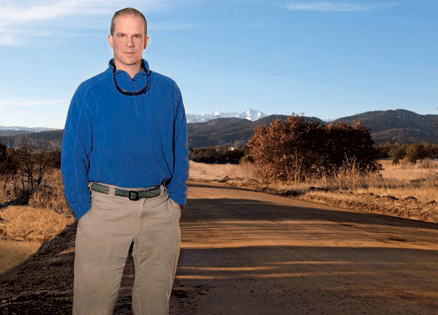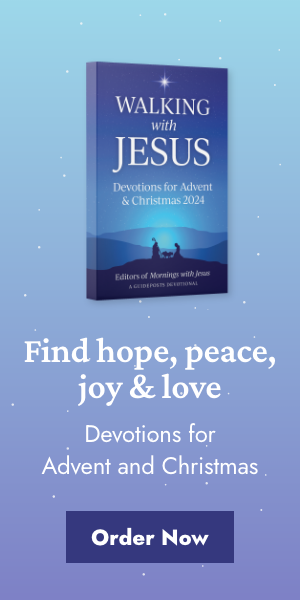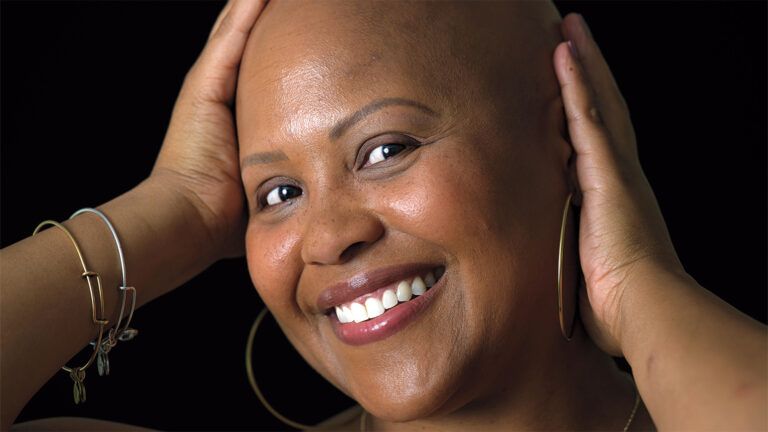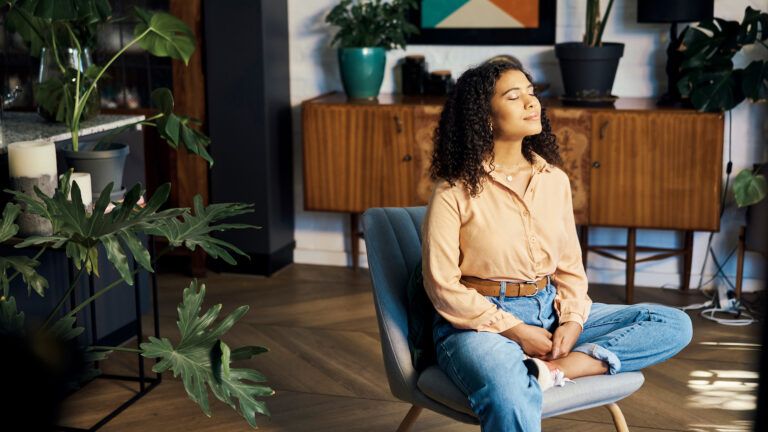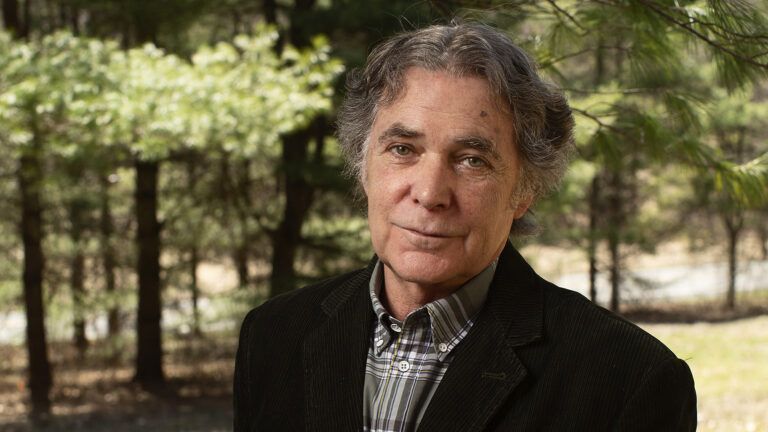The lava rocks glowed red in the fire pit inside my backyard sweat lodge, but I saw only the dark outlines of Chip and Shannon, friends I had turned to for support. A Connecticut Yankee, I’d come to value this sacred Native American tradition, how the intensity of the heat can bring focus and clarity. It was where I’d often felt closest to God. But now I wasn’t sure I’d find him here. We weren’t exactly on speaking terms since the accident six months ago that killed my wife Cassandra, a beloved Navajo activist.
“Lord,” I prayed, my plaintive voice filling the small tentlike enclosure, “please give me wisdom. I can’t make this decision on my own.”
The lodge grew steadily hotter, my skin beading with sweat. I took a deep breath, felt the warmth inside my lungs, then slowly exhaled into the darkness. I could hear Chip and Shannon doing the same.
We’d just returned from the Southern Ute tribal prosecutor’s office. He wanted my input on a plea agreement with the young driver who had fallen asleep at the wheel and slammed head-on into Cass’s car on a desolate stretch of highway on tribal land. That November evening she had just dropped me off at the airport, and three of our four children were in the car with her.
The crash left my son from a previous marriage, 12-year-old Noah, unable to walk, Amada and Dante injured, and me with no way to put our family back together again. I thought back over the prosecutor’s words.
“I know this has been devastating for you,” he had said, “but with no evidence of alcohol or drugs, I think two years in jail is the best we can hope for.” He had explained how sentences can vary depending on the jurisdiction.
I’d asked for a week to think it over, but now that seemed an impossible deadline. For months I’d been focused entirely on the kids, especially Noah. It hadn’t been that long since he’d come home from the hospital. How could I even begin to consider questions of justice? It was just too painful.
What lesson was there to learn from Cass’s death other than that life is profoundly unfair? She was only 30, her whole life ahead of her. Two years in jail? Five? Ten? It wouldn’t bring her back, wouldn’t heal Noah’s spinal-cord injury. How could any decision I made, any ruling in a court of law, possibly matter?
Cass had made a difference in the lives of so many young Natives, one of our many shared passions. Her own journey of rising above the poverty and despair of the reservation was such an inspiration. After college she’d devoted her life to helping her people. She believed in the power of the individual. And she’d had such faith, been baptized in the Animas, the same river where we’d met rafting.
She was the one who pushed me to quit my job as a builder and start a nonprofit organization training Natives to be wilderness guides. She had so much to give. It felt like a bright, brilliant flame had been senselessly snuffed out.
I closed my eyes, trying to focus only on the heat filling the lodge. Sweat dripped from my face and arms. I took a deep breath. Then another. I could feel every pore of my body opening, normally a moment of peace and surrender. But there was no release from the tension inside of me. I was glad for the support of Chip, a minister, and Shannon, a member of the Lakota tribe, but they couldn’t make the decision for me.
The easiest thing would be to go with the prosecutor’s recommendation. He was the expert after all. But there was something about it that troubled me.
I thought about Joseph Montoya, the 19-year-old driver who had kept going straight where the highway makes a sharp turn. He had just driven his girlfriend to work, and he was tired from working a graveyard shift, and a cold coming on that he took medicine for. It was a relief to hear that he hadn’t been drunk, but he probably shouldn’t have been behind the wheel. So the question remained. What price should he pay for our loss? It seemed incalculable.
“More than anything I want Joseph’s sentence to be one I can explain to Noah and the other kids,” I said to my friends. “I know it was an accident, but some punishment seems justified. I mean, the kids and I, we’re going to be living with this for the rest of our lives.”
“It’s not easy,” I heard Shannon say. “A tragedy like this affects everyone. For Joseph there’ll always be the burden of taking a life. And Cass touched so many people. The whole community is grieving. It’s a tremendous loss to us all.”
He sounded just like Cass, thinking about others, seeing the bigger picture. I’d been so focused on my own family’s needs, but what else could I do? If only Cass were here. She would know the right path to take.
Her wisdom was hard won. Her dad, an alcoholic, had been found frozen to death when she was three. Her mother had abandoned her and her five younger siblings when she was only six. The nearest neighbor was miles away and Cass cared for her brothers and sisters for a week until someone discovered their plight. She spent the next 12 years being bounced from family members to foster homes to institutions. Her coping skills were minimal. Drinking until she blacked out became the only way she knew to ease the hurt inside of her.
But those were chapters of Cass’s life I’d only learned about after we started dating. By then she had broken free of her broken childhood and was starting to explore faith. I remembered the day we met, in the summer of 2005. A mutual friend had invited her to go rafting with us on the Animas River. She was a whip-smart, high-on-life, 24-year-old college student, majoring in political science and Native American studies. We hit it off instantly, both single parents who loved hiking, climbing, anything outdoors.
“What are your plans after you graduate?” I asked.
“I want to change the world,” she said with a grin. “Don’t you?”
Cass was serious. She had already started her own collegiate organization, Small Axe, Small Steps, helping young Native college students to make a difference in their communities. And she told her story wherever she went, wanting to give others hope. She saw the potential in everyone, including me.
We tied the knot a year later, by the same river, topping it off with a raft ride, me in my tux, Cass in her veil and gown. That was Cass, always up for adventure.
“She got baptized after we got married,” I said to Chip and Shannon. “Her faith made such a difference. That’s what really helped her finally let go of all the pain in her life. She forgave everyone who had ever hurt her. All that stuff just made her want to work even harder.”
I remembered the talks she gave, how they contained not a trace of anger. Instead, she had a vision.
“She didn’t want people to lose the old ways, the old values,” I said. “She remembered how her grandmother back in New Mexico raised sheep. She dreamed of one day setting her up with some sheep again.”
But that was one more hope that had died with Cass. None of this was getting me any closer to making a decision about Joseph. I kept worrying about the kids. What about Cass and her work would stick with them? Would their most lasting memory be of the wreck? How could Noah not be angry, no longer able to walk or play soccer?
“I just don’t know what to do,” I said. The stones were cooling. I needed to get the kids to bed. I’d have to think about it some more tomorrow.
Outside the lodge, behind my house, I hugged Chip and Shannon. “Sometimes the only answer is to turn things over to God,” Chip said. I nodded, but I wasn’t sure that was even an option. I’d felt so distant from God.
That night in bed I couldn’t relax, my mind a tossed sea of emotions. What would be accomplished by sending Joseph to jail? He was trying to rise above the same destructive cycle that Cass had worked so hard to change. Jail time would be the last thing she would have wanted.
I thought back over the trauma she had endured, the loss of her parents, abuse, alcoholism. But she hadn’t thought of herself as a victim. Just the opposite. Through forgiveness she’d shifted the focus from herself to others.
She was all about doing something that mattered. Somehow she knew there wasn’t enough time, that life is too short to be angry at the world. God, I prayed, I can’t carry this burden any longer. Please take it from me. Let me know you are still close.
I could feel my eyelids getting heavier, my body slowly drifting off to sleep. In my dreams I gradually became aware of thoughts coming one after the other. At first it all seemed hazy, but slowly a picture came into focus. My eyes opened. It was 4:30 A.M., still dark outside, yet for the first time since the accident I could see the way forward. I felt released from some terrible burden. I was at peace. I knew how I would move forward.
The next week, Chip, Shannon and I sat down with the tribal prosecutor and the chief of police, a tough veteran cop. The prosecutor pulled out a legal pad. “So, are you comfortable with us asking for two years?” he asked.
“No,” I said. “Actually, I have a different idea.”
“Uh…okay,” he said, shifting in his chair. “Tell me your thoughts.”
“First, I want Joseph to do a year of volunteer work with groups that serve Native youth,” I said. “And I want him to get counseling. He has to be hurting too.” The prosecutor began writing. “Community service and counseling,” he said. “Not my first choice, but…”
“Then, he needs to buy some sheep. Eight of them,” I continued. The prosecutor stopped writing and looked at me quizzically, as if I’d begun speaking in another language. “And deliver them to Cass’s grandmother in New Mexico.”
“That’s…uh…,” the prosecutor stammered. “Well, that’s a little unusual.”
“One more thing,” I said. “At the end, I’d like him to make a meal for my family and friends and for us to eat it together on the banks of Animas.” Breaking bread, this most traditional way of showing reconciliation.
The room was silent. The prosecutor drummed his fingers on the table. He seemed to be staring at something in the corner of the room. I glanced at the police chief. There were tears in his eyes. “I see what you’re trying to do,” the prosecutor said finally. “All I can do is ask. We’ll see what Joseph and his lawyer say.”
In that moment I felt warmth surging through me, like the release from the most incredible sweat imaginable. I had forgiven Joseph. The rest was up to God.
It’s been a year of healing, some days easier than others. I’m looking forward, in just a few weeks, to sitting with Joseph at the river and hearing of his experience. I know Cass will be there too, in spirit, still working through us to change the world.
Download your FREE ebook, Creativity and Personal Growth: 7 Inspiring Stories On How Crafts Can Change Your Life
